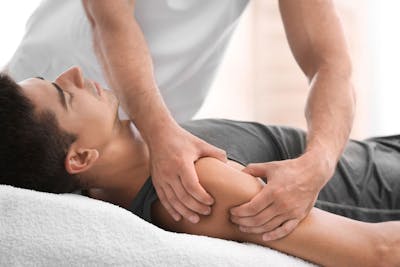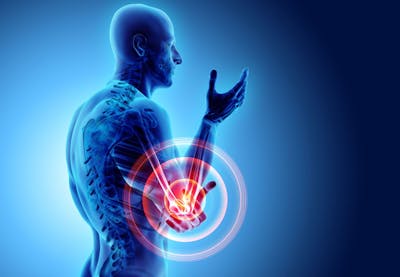
Overcoming Shoulder Tendinitis and Bursitis: Regain Your Freedom of Movement
The shoulder, renowned as the most mobile joint in the body, relies on four crucial muscles that unite to form the rotator cuff, enveloping and stabilizing this intricate joint during elevation. When these muscles and their associated tendons become inflamed, a condition known as Rotator Cuff (RC) Tendinitis arises. This inflammation can be attributed to several factors, including overuse, incorrect postures, injuries, muscle imbalances, inadequate rest, and more.
The Significance of Accurate Diagnosis
Correctly diagnosing RC Tendinitis is paramount for effective treatment and optimal patient outcomes. Each case is unique, and treatment approaches depend heavily on precise diagnoses. The shoulder's complexity, with its numerous structures, demands a detective-like approach to pinpoint the exact source of pain, ultimately defining the success of the treatment.

Recognizing the Symptoms
If you're experiencing RC Tendinitis, you may encounter the following symptoms:
-
Lingering pain in the front and outside of the shoulder.
Pain that radiates up the shoulder, occasionally extending to the elbow.
Sleep disturbances due to pain.
Pain intensified when elevating the arm, combing hair, reaching into a back pocket, or lifting heavy grocery bags.
Understanding the Cause
Repetitive overhead motion is the primary cause of RC Tendinitis, though it can also result from incorrect postures, muscle imbalances, prior injuries, and sports-related incidents. Preventing this overuse injury involves education on appropriate rest, muscle stretching, strengthening, and posture improvement.
Physiotherapy: Your Path to Recovery
At Precision Physiotherapy, we offer a range of treatment options to alleviate RC Tendinitis and promote your healing journey. Our approach consists of several key components:
- Accurate Diagnosis: We initiate the treatment process by thoroughly assessing your symptoms and condition, allowing us to craft a personalized plan of care.
- Education: We provide valuable insights into personal risk factors, rest, and activity modifications.
- Pain Management: We employ pain-reducing modalities, including IFC, TENS, Laser therapy, and cryotherapy, to alleviate discomfort.
- Muscle Strengthening and Stretching: Once pain is under control, we focus on strengthening the rotator cuff muscles and stretching relevant muscle groups to restore balance.
- Posture Improvement: We work to enhance your posture, ensuring you regain optimal function.
- Functional Retraining: Our goal is to help you return to your previous level of activity while preventing further damage.
Frequently Asked Questions (FAQ):
Should I Wear a Brace for RC Tendinitis?
- Braces are not typically recommended for RC Tendinitis. Our personalized treatment plan aims to alleviate discomfort and enhance your natural healing processes.
- Should I Consider a Cortisone Injection for Pain Relief?
- Cortisone injections may be an option for severe cases, but this decision should be made in consultation with your physician and physiotherapist.
Should I Use Ice or Heat for Pain Relief?
- Initially, when inflammation is prevalent, we recommend using ice to reduce pain. As pain subsides, heat may be preferred for muscle relaxation.
- Don't let RC Tendinitis limit your mobility and quality of life. Contact us today to embark on your journey toward pain relief and a full recovery.
